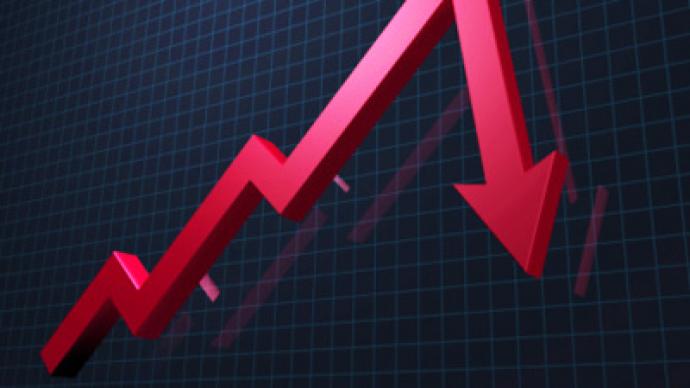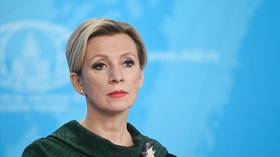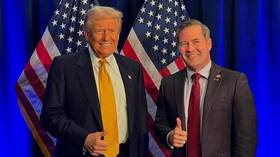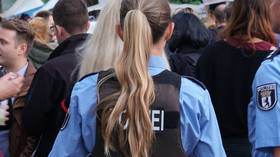2010 economic review

With Russia’s rebound from recession unfolding over the course of 2010 losing some impetus later in the year Business RT spoke with economists and analysts about their view of the passing year.
Russia’s rebound from the depths of recession in 2009 picked up steam in the early part of the year, but became mired as the summer drought pushed inflation – which had dropped to a long term low of about 5.5% in June – and concerns about Russia’s current account rose to the fore, with renewed worries about the fragile state of the global economy and its vulnerability to funding crises in the Eurozone unfolded.Igor Nikolaev, Partner and Director of Strategic Analysis at FBK, said the rebound was stronger than initially tipped, but that the rebound in inflation boded less well.“Among positive things was a stronger than expected effect of deferred demand, which made Russia’s GDP grow 4% in 2010. Basically, we can divide this year into 2 parts, with economic indicators growing in 1H 2010 due to 2 main effects –of deferred demand and a low base – and then going down again. Renewed demand wasn’t supported by the growing fundamentals, which made Russia’s economy slow down again between July and December 2010. Pretty volatile world economies also influenced Russian markets and finally accelerating inflation, which climbed to around 9% this year instead of expected 4-5% also affected our economy.”Deutsche Bank Russia Chief economist, Yaroslav Lissovolik, also highlighted the rebound in inflation, pushed by the summer drought, as a key cloud over the Russian economy, but also noted that Russia’s return to the global bond markets, and the announcement of Russia’s staging of the 2018 World cup provided an upside for the outlook.“The drought in summer 2010 created significant inflationary pressure. But also, this year, after a long break, Russia again entered the Eurobond market, which attracted strong interest, with additional sources to finance the budget deficit and a better environment in foreign markets. That makes for less pressure on Russia’s reserve fund. Generally speaking, in 2010 the Russian economy followed a W shaped economic rebound, showing not very good results in 1Q, then up in 2Q, a downward trend over the July – September period, before picking up again towards the end of the year. And of course the recent victory to host The 2018 World Cup makes Russia more attractive for foreign investors also.”Lissovolik also noted that the weaker rouble through the second half of the year, coupled with the capital outflow were key developments in the year.Otkritie Chief Economist Vladimir Tikhomirov also saw the rebound as slower than expected, but said the rebound in bank lending and manufacturing was the highlight for the year“Russia has shown a slower pace of a recovery compared to what was expected initially. Of course the drought this summer damaged not only agriculture but also hit other Russia’s industries. To talk of positives it is worth noting the recovery in the banking sector with the volume of crediting having started to grow in April. The Financial market also started to stabilize and manufacturing industry showed a turnaround this summer. Anton Stroutchenevski, Senior Economist at Troika Dialog says he believes that the way the year has panned out for the Russian economy has increased macroeconomic risks with policymakers not taking chances to address underlying the Russian economy’s underlying energy dependence.“I think, macroeconomic policy was generally wrong, which led to high inflation of about 8.5% for the year and Russia’s increased dependence on oil. In 1H when the economic environment was quite favorable, with foreign investment coming into the country, Russian authorities focused on increasing money supply and keeping the rouble stable in nominal terms instead of putting the money aside to a reserve fund, for example, as it was before 2008. During most of 2010 inflation was monetary, with the exception of summer months of 2010, when drought impacts were driving prices up. As I see it, the Government should have let the rouble float instead – now it has lost control over money market. Also, the interest rate policy proved inefficient.Also, having seen budget income exceeding planned expenses in 2010, mostly due to higher oil prices, the government decided to boost its social expenditure, which reached 45% of Russia’s GDP this year. That’s not too much for Europe, where institutions work far more efficiently. It’s necessary to live within one’s means, as the saying goes. And Russia just relies on oil. Certainly, it’s impossible to make a sharp turnaround within a year in terms of the whole economic structure, but we could have taken at least some steps away from oil dependence – and Russia didn’t.So, generally speaking, in 2010 macroeconomic risks increased, which is certainly bad. ”Otkritie’s Tikhomirov was more positive about the actions of the government and Central Bank, noting they had helped ward off a deeper recession, but hadn’t generated momentum coming out.“In terms of keeping Russian economy afloat and preventing a deepening of the crisis, increasing money supply by the Central Bank was efficient, but in terms of driving the economy out of the crisis – it wasn’t. However, even this result is a good one, I think. In fact, our reserve fund and a comparatively small governmental debt burden let the State to implement massive money injections.”Tikhomirov added that he saw the actions of the government as laying a basis for the move away from energy dependence and towards a more diverse economy.“In 2010 Russia’s Government has shifted from words to more action, as the crisis has shown that Russia’s dependence on commodities is really dangerous. So, this year, after a long time of talking about its plans, the Government worked out particular programmes for a quick modernization and a shift to a more energy efficient economy. ”












